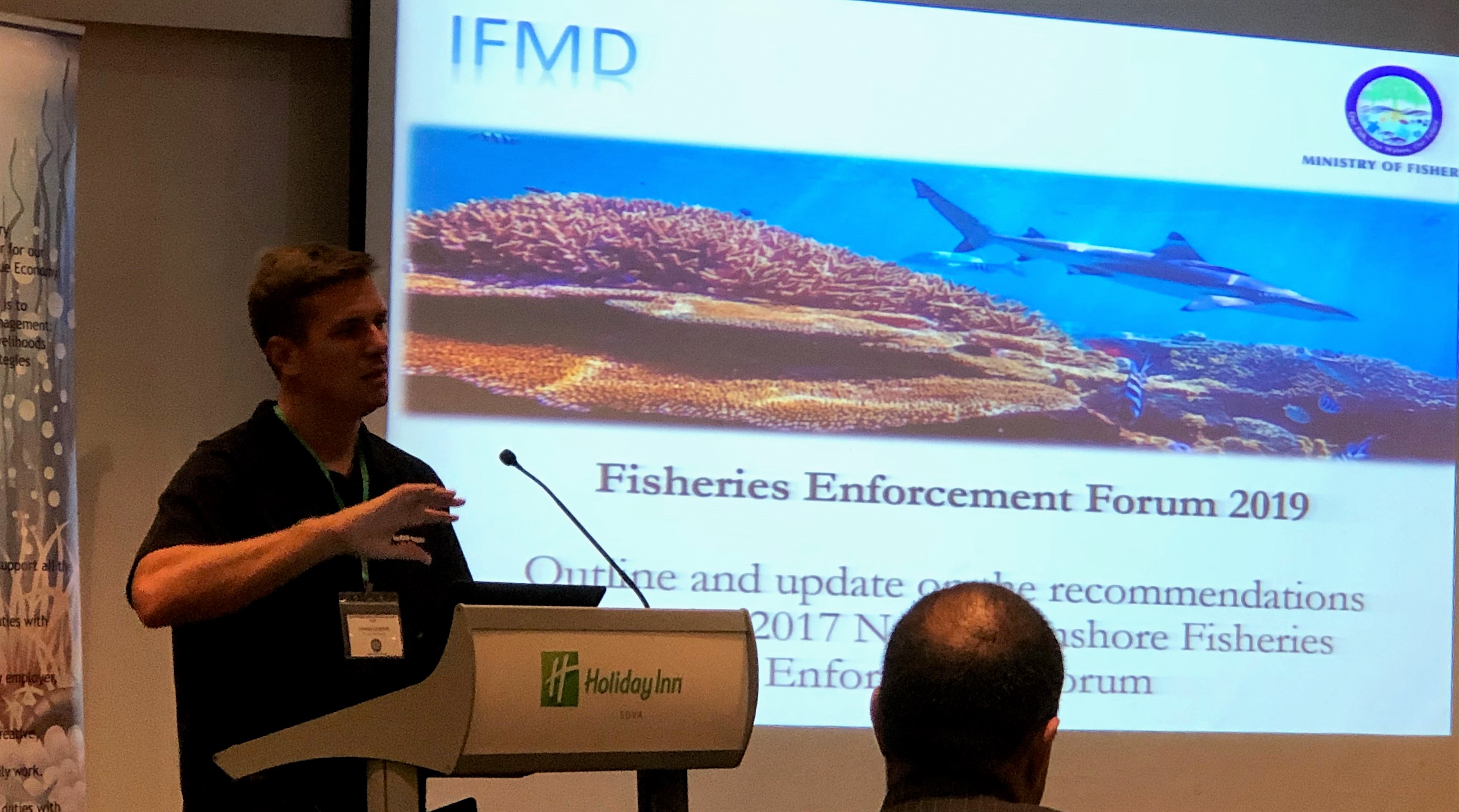Unfortunately, the unnecessary killing of sharks, whether intentional or as a result of an accidental bycatch, removes this opportunity and has adverse effects on marine ecosystems and Fiji’s tourism industry. It is vital, therefore, to provide protection for shark nurseries, and ensure Fiji has effective fisheries laws and initiatives for shark protection that are implemented.
Early this year, dead baby sharks hit the headlines when around 10 juvenile hammerhead sharks were found dumped in a culvert near Suva. These endangered animals may have been caught illegally in nets set across a nearby river mouth where scientists at the Marine School, USP have undertaken a detailed and celebrated study and found a significant and important breeding ground.
Fortunately, the newly created Inshore Fisheries Management Division (IFMD) within the Ministry of Fisheries is currently looking to strengthen a variety of fisheries laws and regulations and their implementation including, but not limited to, the laws that protect sharks. In this bulletin, we consider the existing relevant laws on netting around rivers and discuss additional measures to ensure that sharks are better protected. We also briefly consider other initiatives that are currently being led by the IFMD to make Fiji's inshore fisheries more sustainable for the benefit of all Fijians. For more information regarding other shark conservation measures in Fiji, please see our previous bulletin: “A Legal Policy Discussion of Shark Conservation in Fiji”.


A scientific study conducted by leading marine scientists Amandine Marie, Celso Cawich, Tom Vierus, Susanna Piovano and Ciro Rico of USP and Cara Miller presented empirical evidence for the existence of a Scalloped Hammerhead Shark (SHS, Sphyrna lewini) nursery in the Rewa Delta in Fiji.
This study focused on developing a more detailed understanding of the reproductive biology and critical habitat of the SHS in the Rewa Delta.
Amongst other things, the research suggested that good information regarding shark species’ biology, ecology and habitat use is essential for developing sustainable management plans. Such information includes:
- coastal sharks species being known to aggregate at discrete sites
- the tendency of some sharks to return to their birthplace to breed (including the scalloped hammerhead, Sphyrna lewini) making nursing areas critical habitats
- the expectation that newborn sharks of coastal shark species use more sheltered areas to reduce their vulnerability to predation and compensate for their limited foraging skills.
Taking those factors into consideration, the researchers recommended the following in order of importance:
- Complete ban of gillnet fishing in the Rewa Delta throughout the year
- Partial ban of gillnet fishing in the Rewa Delta from sunset to sunrise throughout the year
- Partial ban of gillnet fishing in the Rewa Delta from sunset to sunrise during the parturition period (October-April)
- Partial ban of gillnet fishing in the Rewa Delta from sunset to sunrise during the peak of the parturition period (December-March).
No comments:
Post a Comment